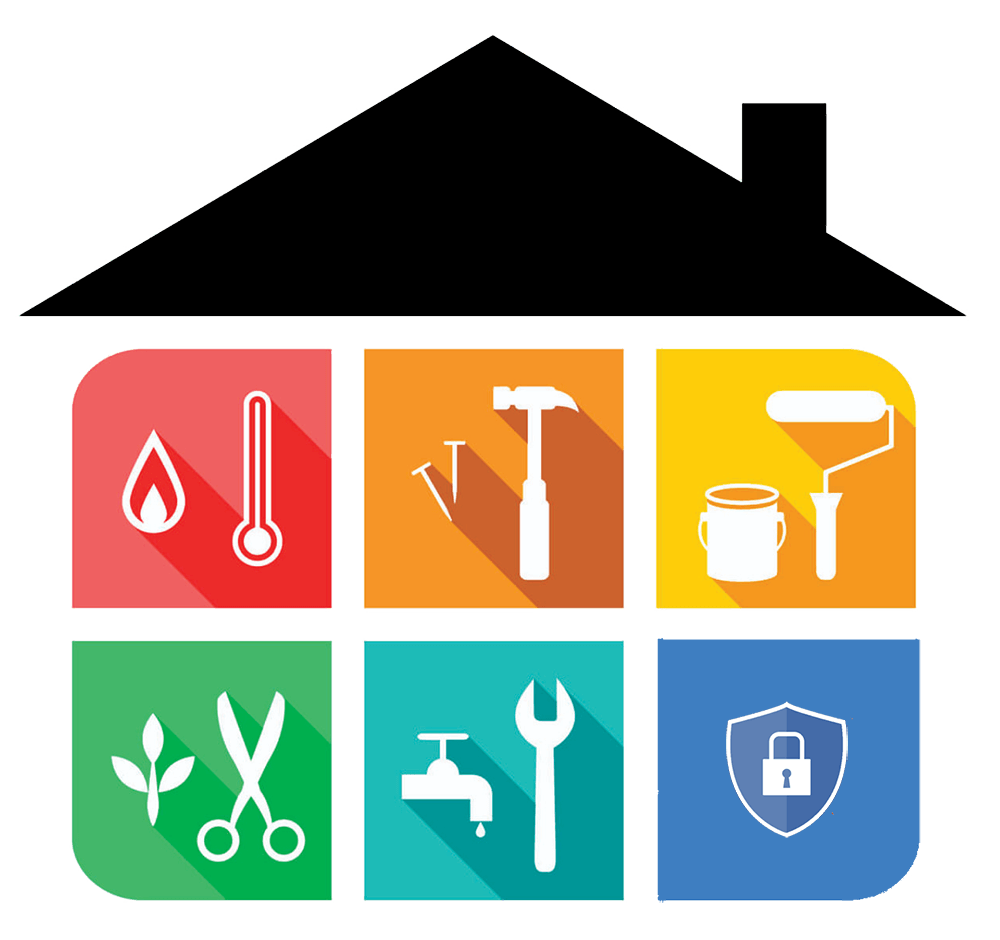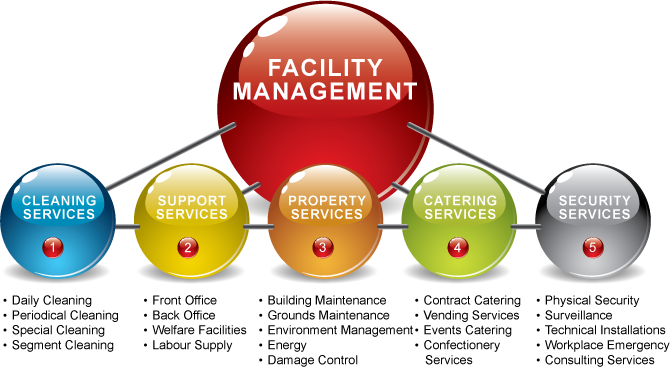Comprehensive Guide to Facility Management for Organizations
Comprehensive Guide to Facility Management for Organizations
Blog Article
Secret Patterns Forming the Future of Facility Management in 2024
As we look in advance to 2024, the landscape of center administration is poised for substantial transformation, driven by several vital fads. The combination of smart structure modern technologies and a shift towards data-driven decision-making guarantee to enhance functional effectiveness while prioritizing sustainability in technique.
Smart Building Technologies

Smart building innovations include a vast array of systems, consisting of smart lighting, a/c controls, and protection systems. By incorporating these systems, facility managers can keep track of and adjust specifications in real-time, causing substantial decreases in power waste and functional prices. For instance, smart sensing units can identify occupancy degrees and adjust lighting and temperature as necessary, making sure that energy is only made use of when needed.
Additionally, these innovations assist in improved information collection, allowing companies to track use patterns and determine chances for additional enhancements. The application of smart structure innovations not only adds to sustainability objectives but also develops healthier workplace that can increase employee efficiency and contentment.
As we relocate into 2024, the fostering of wise building modern technologies will likely speed up, reflecting a wider change towards even more intelligent, receptive, and sustainable facility management techniques.
Data-Driven Decision Making
Significantly, organizations are leveraging data-driven choice making to boost center management techniques. By utilizing information analytics, facility supervisors can derive workable understandings that dramatically improve functional efficiency and resource allocation. The combination of advanced innovations, such as IoT sensing units and real-time monitoring systems, allows the collection of substantial amounts of information on structure performance, tenancy rates, and power intake.
This wealth of details enables center supervisors to identify patterns, forecast upkeep demands, and proactively address issues before they intensify. For example, anticipating analytics can anticipate tools failings, minimizing downtime and repair costs. Additionally, information visualization devices promote better communication among stakeholders, making sure that educated decisions are made collaboratively.
In addition, data-driven approaches enhance tactical planning by allowing center supervisors to assess the effectiveness of current practices and make informed options pertaining to financial investments in technology or infrastructure. As organizations increasingly focus on operational quality, data-driven choice production is positioned to end up being a keystone of effective facility administration techniques in 2024 and beyond. Ultimately, the ability to take advantage of information properly will empower organizations to create extra effective, productive, and resilient centers.
Sustainability and Environment-friendly Practices
The focus on data-driven decision making naturally lines up with the growing concentrate on sustainability and green techniques within center administration. As organizations increasingly focus on ecological responsibility, center supervisors are leveraging analytics to optimize source use, lower waste, and reduce carbon footprints. This critical technique allows the integration of energy-efficient systems, such as LED lighting, clever a/c controls, and sustainable energy resources into facility procedures.
In addition, the application of sustainable methods extends beyond power consumption. Center managers are taking on green materials and advertising recycling efforts to create a round economy within their facilities. This not just improves the ecological profile of the company but additionally fosters a society of sustainability amongst staff members.
Conformity with environmental guidelines is an additional important aspect driving the fostering of green techniques. By utilizing data analytics, center supervisors can keep track of conformity metrics and identify locations for renovation, guaranteeing link adherence to international and neighborhood sustainability standards.
Hybrid Job Versions
A significant shift towards crossbreed job models is reshaping the landscape of facility administration in 2024. This paradigm integrates in-office and remote job, necessitating a reevaluation of space use, resource allowance, and worker engagement strategies. Organizations are increasingly identifying the importance of adaptable work spaces that accommodate diverse requirements and choices.
Facility supervisors have to adjust by carrying out versatile workplace designs that sustain joint initiatives while offering locations for focused job. This consists of the assimilation of modern technology to help with smooth interaction and collaboration amongst remote and in-office staff members. Smart building remedies, equipped with analytics and sensing units, allow for real-time surveillance of area use, allowing organizations to enhance their environments successfully.
In addition, hybrid work versions stress the need for reliable facility administration that focuses on staff member experience. This encompasses not only innovation and room design however likewise the growth of next page plans that advertise a balanced work-life dynamic. As business browse this change, the duty of center management ends up being pivotal in developing a dexterous workplace that fosters productivity and drives business success. Basically, the hybrid work design is reinventing center monitoring, motivating a positive technique to satisfy the progressing needs of the labor force.
Improved Occupant Health
As companies accept hybrid work models, an enhanced concentrate on passenger wellness is becoming important to center management strategies. Facility Management. This change acknowledges that a healthy and satisfied labor force directly influences efficiency and retention rates. Facility supervisors are now prioritizing settings that advertise physical and mental health, integrating elements such as all-natural lighting, biophilic style, and accessible wellness sources

Technology plays a crucial function in this development. Smart building systems can keep track of environmental elements and adjust setups in real-time, making certain optimum convenience degrees - Facility Management. Moreover, comments systems, such as tenancy sensing units and worker surveys, permit center supervisors to continuously improve wellness campaigns based on resident requirements.

Verdict
In 2024, the future of center management will be dramatically influenced by the combination of smart structure innovations and data-driven decision-making, cultivating improved operational performance. Sustainability efforts will prioritize environment-friendly practices, while the development of crossbreed job models will require flexible office layouts. Furthermore, a heightened concentrate on passenger health via advanced a/c systems and biophilic layout will certainly add to healthier workplace. These trends collectively underscore the my link advancing landscape of facility management in reaction to contemporary challenges and chances.
Center supervisors are taking on environment-friendly products and advertising recycling initiatives to produce a circular economy within their centers.A substantial change towards hybrid job models is reshaping the landscape of center administration in 2024.Additionally, hybrid work designs highlight the requirement for effective center administration that focuses on worker experience.As organizations welcome hybrid job models, an enhanced focus on owner health is becoming indispensable to facility monitoring methods.In 2024, the future of facility monitoring will certainly be dramatically affected by the integration of clever building modern technologies and data-driven decision-making, promoting improved operational efficiency.
Report this page